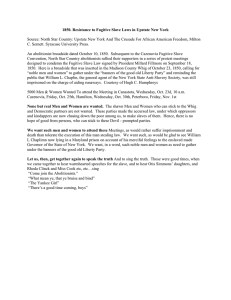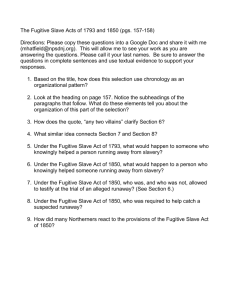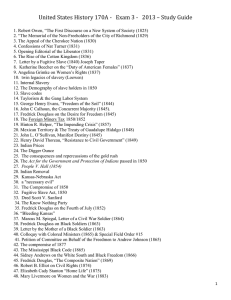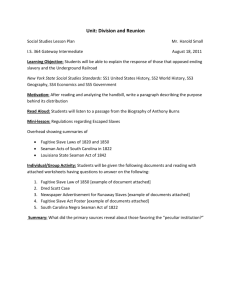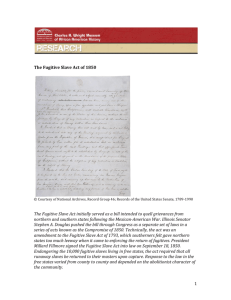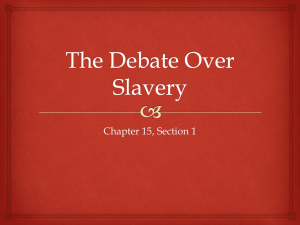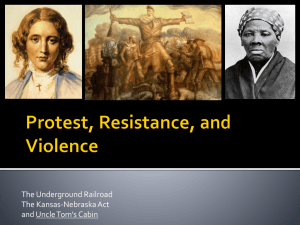Congressional Scales
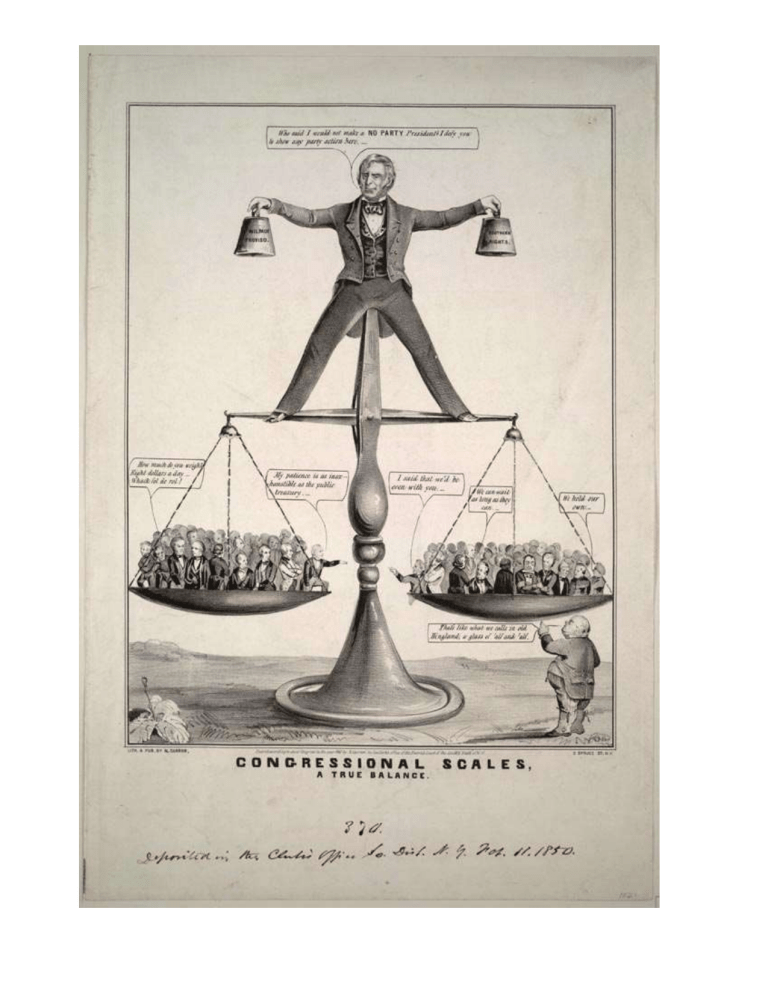
Congressional Scales
Nathaniel Currier (1813-1888)
Congressional Scales, a True Balance
New York: N. Currier, 1850
Lithograph on woven paper
Prints and Photographs Division
Copyright deposit (34A)
This satirical print by Currier& Ives comments on President Zachary Taylor's attempts to balance southern and northern interests on the question of slavery in 1850. Various members of Congress fill the evenly balanced scales including the Compromise of 1850 opponents Senator Henry Clay, left, and Senator John C. Calhoun, right.
Slaves and the Courts, 1740-1860
Boston slave riot, and trial of Anthony Burns : containing the report of the Faneuil Hall meeting, the murder of Batchelder, Theodore Parker's lesson for the day, speeches of counsel on both sides, corrected by themselves, verbatim report of Judge Loring's decision, and, a detailed account of the embarkation.
The Fugitive Slave Law
Theodor Kaufmann
Effects of the Fugitive-Slave Law
New York: Hoff & Bloede, 1850
Lithograph on woven paper
Prints and Photographs Division (33A.1)
In 1850, Congress passed this controversial law, which allowed slave-hunters to seize alleged fugitive slaves without due process of law and prohibited anyone from aiding escaped fugitives or obstructing their recovery. The law threatened the safety of all blacks, slave and free, and forced many Northerners to become more defiant in their support of fugitives. Both broadside and print, shown here, present objections in prose and verse to justify noncompliance with this law.
S. M Africanus
The Fugitive Slave Law
Hartford, Connecticut: 1850
Printed broadside
Rare Book & Special Collections Division (33A)
Map Collections
PREVIOUS NEXT NEW SEARCH
Click on picture for larger image, full item, or more versions.
[Rights and Reproductions]
Reynolds's political map of the United States, designed to exhibit the comparative area of the free and slave states and the territory open to slavery or freedom by the repeal of the Missouri Compromise.
Reynolds, William C.
OTHER TITLES
Political map of the United States
CREATED/PUBLISHED
New York : Wm. C. Reynolds and J.C. Jones, c1856.
NOTES
Relief shown by hachures.
Includes statistics from the 1850 census and ill.
Scale [ca. 1:7,200,000]
SUBJECTS
Slavery--United States--Maps.
United States.
RELATED NAMES
Jones, J. C.
MEDIUM
1 map : col. ; 48 x 70 cm.
CALL NUMBER
G3701.E9 1856 .R4
REPOSITORY
Library of Congress Geography and Map Division Washington, D.C. 20540-4650 USA
DIGITAL ID g3701e ct000604 http://hdl.loc.gov/loc.gmd/ g3701e .
ct000604
African American Odyssey
Exhibit Sections:
Slavery | Free Blacks
| Abolition |
Civil War | Reconstruction http://memory.loc.gov/ammem/aaohtml/exhibit/aopart3b.html
Booker T. Washington Era | WWI-Post War | The Depression-WWII | Civil Rights Era |
Abolition, Anti-Slavery Movements, and the Rise of the Sectional
Controversy
Part 1
The Fugitive Slave Law of 1850
S. M. Africanus.
The Fugitive Slave Law .
Hartford, Connecticut, 1850.
Rare Book and Special Collections Division . (3-5)
This controversial law allowed slave-hunters to seize alleged fugitive slaves without due process of law and prohibited anyone from aiding escaped fugitives or obstructing their recovery. Because it was often presumed that a black person was a slave, the law threatened the safety of all blacks, slave and free, and forced many Northerners to become more defiant in their support of fugitives. S. M. Africanus presents objections in prose and verse to justify noncompliance with this law.
